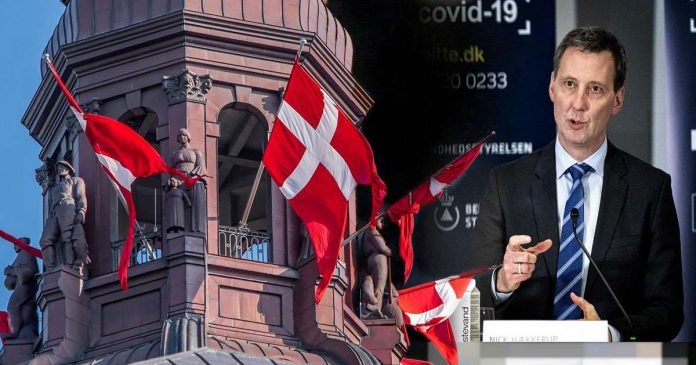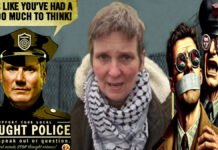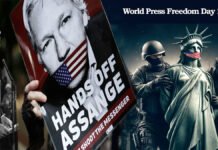Denmark says it’ll take measures to guard academics’ freedom of expression and forestall the dangers of “self-censorship”.
The Danish authorities has said that academics ought to be capable of talk about sure topics, together with cartoons of the Prophet Mohammed, the Holocaust, girls’s rights, and LGBT+ points.
The ruling Socialist social gathering stated it will start discussions in parliament on “freedom of expression” in January.
“It is unacceptable for violence and threats to create self-censorship and censorship in schools,” stated Danish Justice Minister Nick Hækkerup.
“All teachers must feel free and safe in their teaching, and Parliament has an obligation to ensure this,” he added.
“It is unacceptable for violence and threats to create self-censorship and censorship in schools,” said Danish Justice Minister Nick Hækkerup.
“All teachers must feel free and safe in their teaching, and Parliament has an obligation to ensure this,” he added.
Last week, Denmark’s opposition had a majority support its proposal for school teaching on cartoons of the Prophet Mohammed.
The cartoons — which were first published by the Danish newspaper Jyllands-Posten in 2005 — triggered an unprecedented wave of anti-Danish sentiments in several Muslim countries. Islam strictly forbids any depiction of Mohammed.
The cartoons were also connected to the 2015 terror attack on the French satirical weekly Charlie Hebdo in Paris, which killed 12 people.
Last year, French history teacher Samuel Paty was beheaded after showing cartoons of Mohammed during a lesson on freedom of expression.
Denmark has said that many teachers in the country fear “violence or threats of violence” related to their work.
“Teaching in primary schools must, of course, include teaching about democracy and freedoms, and the Muhammad crisis — as a major event in Danish history — is a natural part of that teaching,” the justice ministry said in a statement.
The government is convening negotiations on self-censorship
Teachers in primary and lower secondary schools must feel safe no matter what material they teach. The government will therefore convene negotiations at the beginning of the new year on freedom of expression and self-censorship.
Freedom of expression is a very fundamental value in a democratic society. But many refrain from participating in the public debate because of the fear of terror, violence and threats. Unfortunately, the fear is not unfounded, because recent years have clearly shown that there are violent groups and individuals in Danish society who do not respect the right of others to freedom of expression.
The threat to freedom of expression is not least relevant in relation to what teaching material teachers in primary and lower secondary schools use. The teaching in the primary school must of course include teaching in democracy and freedom rights, and the Muhammad crisis is, as a significant event in Danish history, a natural part of that teaching. We must and will not accept that teachers face threats when they fit their work.
Most recently, SF has pointed out that there is a problem in relation to Danish teachers who, for fear of violence or threats of violence, place restrictions on themselves in relation to the organization of their teaching. Tomorrow, the Folketing will consider a resolution on the subject. In the Government’s view, however, the subject deserves a more thorough and broader treatment than that contained in the resolution. Against this background, Minister of Justice Nick Hækkerup will convene negotiations at the beginning of the new year on how we can best ensure a safe framework for teachers’ teaching.
Minister of Justice Nick Hækkerup states:
“The government completely agrees with SF that it is unacceptable if through violence and threats self-censorship and censorship is created in the school, regardless of whether it is due to e.g. The Muhammad crisis and its primary sources, the Holocaust, LGBT + issues, women’s equality or sexual liberation. All teachers must feel free and secure in their teaching, and the People have no obligation to ensure this. I will therefore now convene the parliamentary parties for negotiations on freedom of expression and self-censorship at the beginning of the new year. “
Support Independent Journalism Today
Our unwavering dedication is to provide you with unbiased news, diverse perspectives, and insightful opinions. We're on a mission to ensure that those in positions of power are held accountable for their actions, but we can't do it alone. Labour Heartlands is primarily funded by me, Paul Knaggs, and by the generous contributions of readers like you. Your donations keep us going and help us uphold the principles of independent journalism. Join us in our quest for truth, transparency, and accountability – donate today and be a part of our mission!
Like everyone else, we're facing challenges, and we need your help to stay online and continue providing crucial journalism. Every contribution, no matter how small, goes a long way in helping us thrive. By becoming one of our donors, you become a vital part of our mission to uncover the truth and uphold the values of democracy.
While we maintain our independence from political affiliations, we stand united against corruption, injustice, and the erosion of free speech, truth, and democracy. We believe in the power of accurate information in a democracy, and we consider facts non-negotiable.
Your support, no matter the amount, can make a significant impact. Together, we can make a difference and continue our journey toward a more informed and just society.
Thank you for supporting Labour Heartlands












